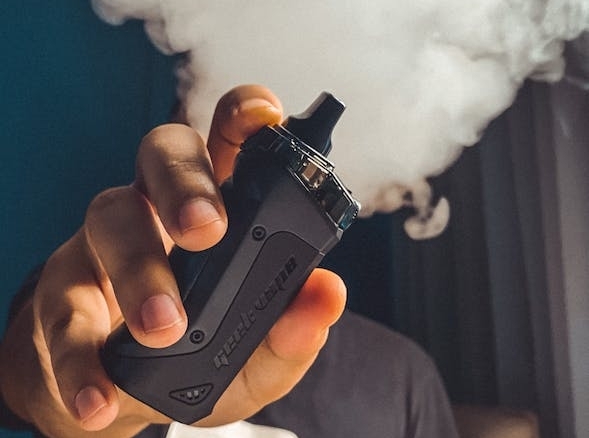Vaping has gained significant popularity in the United Kingdom over the past decade, offering an alternative to traditional tobacco smoking. As vaping popularity rises, the UK government has introduced comprehensive laws and regulations. These measures ensure vaping product safety, quality, and public health protection.
The Regulation of Vaping Products
The regulation of vaping products in the UK falls under the Tobacco and Related Products Regulations 2016 (TRPR). These regulations were implemented to ensure that e-cigarettes and related products are safe for consumers. Key aspects of the TRPR include:
Product Standards
Vaping products must meet specific safety and quality standards. These standards cover aspects like the composition of e-liquids, nicotine levels, and product packaging. Compliance with these standards is crucial to ensuring consumer safety.
Advertising Restrictions
There are strict rules regarding the advertising and promotion of vaping products. Advertisements must not target minors or make unverified health claims. This aligns with the government’s commitment to protect young people from the potential risks of vaping.
Age Restrictions
One of the central concerns surrounding vaping is its appeal to young people. To address this issue, the UK has implemented age restrictions:
- Minimum Age: It is illegal to sell vaping products to anyone under the age of 18 in the UK. Retailers are obligated to check the age of customers before selling vaping products.
- Vending Machine Ban: Vaping products cannot be sold through vending machines unless they are located in adult-only establishments.
Packaging and Labelling
Proper packaging and labelling are essential to ensure that consumers have access to clear and accurate information about vaping products:
- Child-Safe Packaging:To prevent accidental ingestion by children, vaping devices and e-liquids must be sold in packaging designed to be child-resistant.
- Warning Labels: All vaping products must carry warning labels highlighting the potential risks, including the addictive nature of nicotine.
Cross-Border Sales and Imports
The UK government has implemented specific regulations concerning the cross-border sales and imports of vaping products to maintain safety standards and ensure that consumers can access high-quality products. Here are the key aspects of these regulations:
Notification to the MHRA
Manufacturers and importers of vaping products that intend to sell them in the UK must notify the Medicines and Healthcare Products Regulatory Agency (MHRA) about their products. This notification process ensures that the MHRA has information about the products available. It helps in monitoring and regulating the vaping industry effectively.
Importation for Personal Use
Individuals wishing to import vaping products for personal use should be aware of the rules. The official government guidelines state that individuals can import up to a three-month supply of e-cigarettes and e-liquids for personal use without needing to submit a notification to the MHRA.
However, there are size restrictions in place. E-cigarette tanks should not exceed a capacity of 2ml, and nicotine-containing e-liquids for sale in one refill container must not exceed 10ml.
Retailers and Wholesalers
Retailers and wholesalers involved in cross-border sales of vaping products must ensure that the products they sell comply with UK regulations. This includes checking that products have been properly notified to the MHRA, meet safety and quality standards, and adhere to packaging and labeling requirements.
Retailers and wholesalers should also consider the age restrictions in place and not sell to individuals under the age of 18.
VAT and Customs Duty
Importers may be subject to Value Added Tax (VAT) and customs duty when importing vaping products. Businesses and individuals involved in cross-border sales must know these potential tax obligations.
Notification Exemptions
Some specific exemptions exist for certain vaping products, such as those used for medical purposes. Manufacturers and importers should check whether their products fall under these exemptions.
Final Thoughts
The United Kingdom has proactively regulated vaping to protect public health and ensure product safety. As vaping continues to evolve, consumers, manufacturers, and retailers must stay informed and comply with these regulations to promote responsible vaping practices in the UK.


